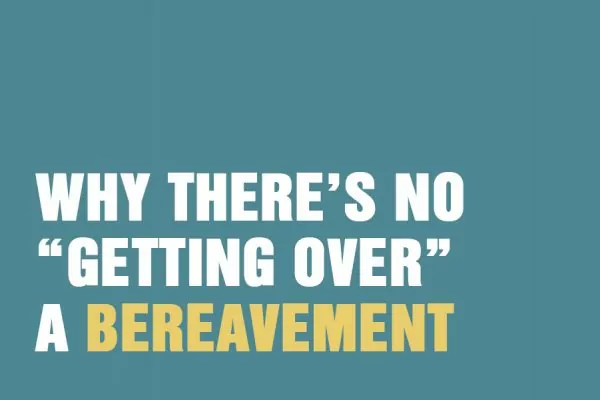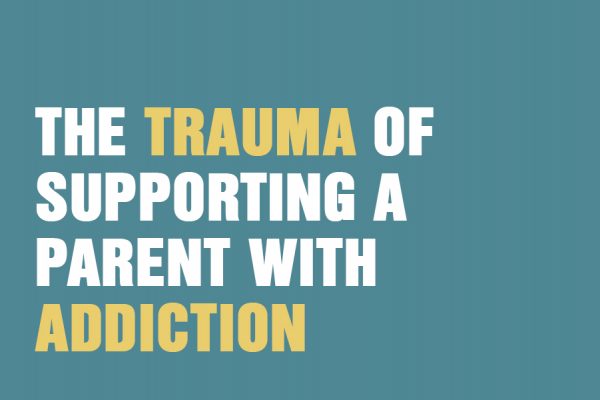Growing up with a mentally ill mum has had its challenges.
From first memories of not being able to reach her through the bars of my cot to the fantastic conversations we have today, my Mum has been the source of fantastic comedy anecdotes, excruciating embarrassment and concerned confusion for my whole life. It’s all very different now as we have a transformed relationship all thanks to a life-changing conversation for both of us that happened just after she was sectioned.
Mum was finally diagnosed with multiple mental health problems at 80 years old and her professional care and support all happened very quickly once the mental health team kicked in. They’d had her on their radar for years, but she wasn’t having any of it. All she was having was whiskey, too many sleeping pills at all hours of the day and a hotline to the local police who, in turn, called me at all hours of the day and night.
Humour has always been my coping strategy; turning mum’s antics into stories to make people laugh.
Up until 8 years ago my beloved Mum was out of control and I was constantly charging down from London to Littlehampton to sort out her messy life. One minute it was her doctor’s exasperated call to see if I could convince Mum to stop turning up and harassing the poor reception staff. The next it was the local PCSO telling me that they’d deposited Mum back home to sleep it off. Then there were the neighbours concerned by her carpet-covered garden, complaints about notes and toothpaste left on their cars and her string of twenty of thirty answer phone messages getting more and more incoherent as the drink kicked in. But then I also had the postman delivering her purse with her last £3.84 in it because she’d heard I was struggling a bit with cash (and her pension arrived next Monday anyway). Or she’d save for months to buy me a ring that she told me was worthless, but might look nice for a night out. I discovered recently that it was an incredibly expensive antique that would have cost her a huge amount – no wonder she was out working all hours when she could.
As a child it was a very confusing world.
Mum would turn up at school with bowls of porridge I hadn’t eaten and order me in front of my class to eat it before coming home. She’d borrow people’s dogs in the park, call everyone by names that weren’t theirs, march me up to brides to have me in their wedding photo, gate-crash parties in various wigs and once threw her handbag into the orchestral pit mid-ballet to get my dad’s attention when she didn’t like the sound of the babysitter he’d got in after they divorced. Fun and games. I didn’t want people to feel sorry for me, I wanted them to laugh and find it all hilarious – now, where have you heard that before?
Love and acceptance are two of my favourite words.
I’ve always loved Mum and she’s always loved me, although there have been times when it hasn’t felt like it. These days I love everything about her and have re-remembered the bad times by pointing the lens of a loving mother on the peculiar events that would have the authorities up in arms if they happened today. Mum simply got things a bit wrong – actually, a lot wrong – but it wasn’t her fault. She came from a lost generation of mothers in the 60s and 70s who were cast aside as “nuts”, ignored and left to get on with it. My long-suffering Dad tried hard to get her support and help, but back then it was impossible for anyone else to get involved unless she sought the help herself and she was never going to do that as she didn’t really understand that she was ill.
Shall I tell you what happened on the day she was sectioned?
Mum had seen a group of teenage boys hanging around the park, had taken out her old tin gun (from a friend who fought in the first world war) and brandished it at them, telling them to go out and get jobs or go back home to their mothers. They weren’t taking that advice seriously, so started heckling her as she wandered off, ranting and raving towards the off license. A neighbour watched it all and phoned the police when the group started following her down the woodland path.
It was the day I’d been dreading my whole life as I’d been saying to her “Look, if you don’t stop all this, I won’t always be around to take care of things, you’ll end up sectioned, locked up and end your days surrounded by crazy people!”. She was locked up (all night in a police cell for her own safety), she was sectioned so that the mental health team could assess her and now she is in a secure care home. But, it was the best thing that could have happened for her – I tried, but had the same problem as my Dad all those years ago. My rescuing her all the time only prevented the professionals doing that right thing for her, so had I been doing it wrong all those years?
She’s a wonderful woman and I wouldn’t change her for the world.
Without Mum I wouldn’t be as brave as I am and it’s thanks to Mum that I am pretty fearless – after all, nothing is ever going to be as embarrassing or tricky as some of the situations I found myself in thanks to her. For example, if I wanted flowers to take to an old lady in hospital, Mum would march up to the nearest pretty garden and demand they pick us a bunch of flowers from their prize blooms, saying that it was me who wanted them (I did want flowers, but I wanted to BUY them!).
We were on a day out in town and when my brother and I said we were thirsty. Did we get a can of pop from the café? No, we were marched into the De Vere Hotel on the pretext that we were fascinated by what a posh hotel looked like inside (we weren’t by the way). The waiter then went off and returned with a silver tray, cut glass ice bucket, posh glasses, silver tongs, and slices of lemon – the lot. Oh, the embarrassment of it – in main reception! But looking back now, I’d shake that waiter’s hand. He wasn’t belittling us, was he? He was creating an event that we’d never forget and getting us the best he could for no money.
Everything she did was with love at its heart – even dumping me on unsuspecting families for weeks on end and putting me in the back of strangers’ cars with instructions to drive me home were done because she thought other people would have more to offer than she did.
Our transformational conversion?
Once she was settled in her psychiatric ward I sat her down and asked her to concentrate for a few minutes when I explained to her that I’d finally understood the extent of her illnesses and that I was so grateful and proud of her for what she’d done as a mother, despite everything. I told her I loved her and asked her to acknowledge that she’d heard me and understood what I was telling her. She took my face in her gentle hands and said, “Thank you darling, I know now, thank you”. Then she was off, berating the nurses for having apricot jam rather than strawberry and chasing a cat in the garden.
From that moment any angst, negative memories or feelings of resentment disappeared. I’ve since learned more about her bi-polar, frontal lobe abnormality, early dementia, anxiety, borderline personality disorder and depression and have come to the conclusion that Mum and her behaviour are two very separate things. I can love her 100% – and it’s fine to hate some of her behaviour as that’s not who she is, it’s just behaviour. I could choose to let it be my excuse for my own insecurities growing up or I could see it for what it is. I probably still have a few niggles and old coping strategies that need straightening out, but they’re disappearing.
Sonia’s Mum
When I started posting little snippets on Facebook I was getting that fantastic hit of affirmation with all the likes and comments. Mum was becoming a bit of an icon. Then people suggested I start a blog. A blog? Really? Who would read it apart from a few friends and people who’ve met her? It started small, but then people started following and sharing the stories saying that they were a mix of funny and poignant, but most importantly a source of strength for people who’ve had mentally ill parents or family members. I was amazed by how popular soniasmum.com became, so I released a new blog post every week.
What I’m finding incredible is how people are sharing their own stories after reading the stories on the blog. I had a lady tell me about her resentment towards her tricky mum and that they hadn’t spoken in ten years. She heard me speaking on the Jeremy Vine show on Radio 2 and wondered if her own mum’s crazy behaviour was in fact mental illness and not sheer bloody mindedness. She got her dad to arrange a meeting, they had a very similar conversation to mine and her mum told her that she’d been terrified of revealing her mental state to anyone, including her own family, for fear of being locked up or having her children taken away. They have all arranged to see each other every month and are patching up their memories. Isn’t that wonderful?
I’d love to hear what you think of the blog and if you had any of your own stories to share. I believe that there a lot of us out there with mums who may have had similar problems in the 60s, 70s and even the 80s when mental illness wasn’t discussed as openly and honestly as it is today. If only The Awareness Centre had been around for my mum all those years ago, things may have been very different for her – who knows?

Sonia Beldom is a media skills trainer and TV casting director. In her spare time she writes, plays piano in a jazz trio and drives a classic 1950s red routemaster bus – all thanks to her mum’s great attitude of doing the things you love now, not tomorrow.
Sonia’s background is in TV ideas creation and celebrity casting – with credits including “An Idiot Abroad”, Victoria Wood’s “Victoria’s Empire”, “Celebrity Eggheads” and “Elizabeth Taylor: Auction of a Lifetime”.
Sonia started blogging about her mum in Autumn 2017 after constant nagging from friends to expand her Facebook posts. Jeremy Vine read the blogs, invited her onto his radio show and the blog’s following is growing by the day. www.soniasmum.com







